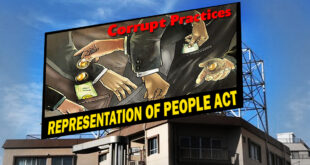- As Syria enters the 13th year of its lethal civil conflict, a bomb explosion in Istanbul on November 13, that killed six persons, seems to have accelerated a diplomatic process which could bring peace to that tormented land.
- Turkish authorities immediately blamed Kurdish militants in Syria, represented by the People’s Protection Units (YPG, in its Kurdish acronym), for the bombing, and even arrested a Syrian woman who confessed to her affiliation with Kurdish organisations in Turkey and Syria.
- From November 20, Turkey initiated “Operation Claw-Sword” with a series of bombings on Kurdish targets in both Syria and Iraq.
- Turkish attacks are directed at the Syrian Democratic Forces (SDF) that includes the YPG and, under American protection, controls large parts of northeast Syria. It has close ties with its domestic Kurdistan Workers’ Party (PKK), which is viewed by Turkey as a terrorist organisation.
- Since May last year, Turkey has been threatening to launch a military invasion against Kurdish positions in Syria.
- This has been postponed on Russian insistence, giving Turkey an opportunity to consider diplomatic options to serve its security interests.
The Russia-Turkey-Syria engagement
- At the end of November, the Turkish President, Recep Tayyip Erdoğan, after an earlier conversation with Russian President Vladimir Putin, proposed a re-engagement with Syria, starting with meetings of Defence and Foreign Ministers, and culminating with a summit of the three leaders.
- With Mr. Erdoğan facing elections in June, there are domestic considerations in play as well. A tough anti-Kurd posture appeals to Turkey’s nationalists, while improved relations with Damascus will facilitate the return of 3.7 million Syrian refugees whose presence has caused considerable unhappiness among the general Turkish population.
- The meeting of Defence Ministers took place in Moscow on December 28 — the first Minister-level meeting between Syria and Turkey since 2011.
- However, the complex issues that divide Syria and Turkey have become quickly apparent. Syrian media reported that Turkey had agreed to withdraw from territories that its forces occupy in northern Syria, and replaced by Syrian government forces.
- But Turkey has immediately clarified that while it has no designs on Syrian territory, its troops will withdraw only when there is no terrorist threat — a clear reference to the SDF.
Regional diplomatic implications
- Amidst the Ukraine war, Turkey has continued its balancing act between the United States and Russia: it has supplied drones to Ukraine; but it has also facilitated agreements relating to grain supplies through the Bosphorus and has refused to join the Western sanctions on Russia.
- Turkey and Russia continue to work closely together in Syria, though differences remain. On the question of the Kurds, the Russian and Syrian priority is to detach the Kurds from the U.S., curb their separatist aspirations, and ensure the integrity of Syria.
- They hope to address Turkey’s demand for a 30-km “security zone” across the Syria-Turkey border by replacing Kurdish militia with Syrian government troops.
- However, Turkey has not disengaged itself so far from the extremists of the Hayat Tahreer al-Sham (HTS) that control the northern Idlib province, a crucial Russian and Syrian demand.
- Some progress on the Kurd issue is apparent: in the face of Turkey’s threats to invade Syria in November, the U.S. quickly evacuated its diplomatic personnel from the region, viewed as signalling little interest in protecting the Kurds.
- It is in this background that the leader of the SDF, Mazloum Abdi, has spoken publicly about the importance of Syrian unity and the need for “coordination with the Syrian army to prevent a Turkish occupation of Syria”.
Outlook for Syria
- Syria believes it has a much stronger hand than earlier. Syria is being increasingly included within the Arab fold: besides the United Arab Emirates and Bahrain having opened embassies in Damascus, in early December, a Syrian-Saudi dialogue took place in Riyadh over four days on combating extremism.
- Symbolically, the Syrian flag flew on Riyadh’s streets during Chinese President Xi Jinping’s visit (December 7-9).
- The kingdom has encouraged this rapprochement with Syria to ensure that Arab interests are not diluted under Turkish and Iranian influence.
- The U.S. remains firmly opposed to the Russia-sponsored tripartite talks and the improvement of the regional states’ ties with Syria.
- But it has little capacity to oppose Turkish initiatives in Syria or to provide effective support to the beleaguered Kurds.
- It retains 900 troops in northeast Syria, but has no idea regarding what purpose they are to serve.
- Again, Russia and Iran remain strong supporters of Syria’s crucial interests — the eradication of HTS extremists at Idlib, the dilution of Kurdish aspirations for autonomy and the incorporation of the Kurds within the Syrian state, and the exit of the rump U.S. military presence in the northeast.
- Hence, Syria has so far shown no overt enthusiasm about high-level engagements with Turkey, hoping to obtain more firm Turkish guarantees relating to its interests.
- This is perhaps being facilitated by Iran: Iran’s Foreign Minister Hossein Amir-Abdollahian met Mr. Erdoğan and his Turkish counterpart during his visit to Ankara on January 17, while the latter has said he could meet the Syrian Foreign Minister in early February.
SOURCE: THE HINDU, THE ECONOMIC TIMES, PIB
 Chinmaya IAS Academy – Current Affairs Chinmaya IAS Academy – Current Affairs
Chinmaya IAS Academy – Current Affairs Chinmaya IAS Academy – Current Affairs



